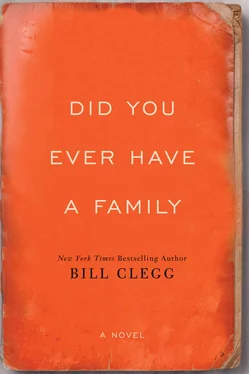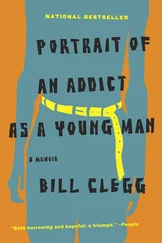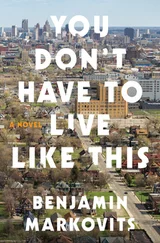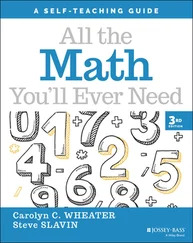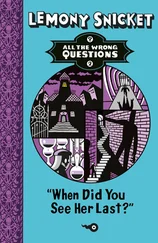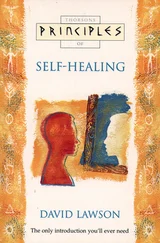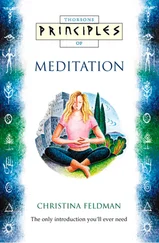She pictures the dazed survivors, aimlessly stumbling. She circles each one, agitating with questions. Who had been driving? Who looked away at exactly the wrong instant? Who fiddled with the radio instead of paying attention? Who leaned over to find a mint in a purse, or a lighter, and by doing so lost everyone that mattered? How many, she wonders, stepped from the wreckage without a bruise or scrape? And of these lucky and living, who had been in the middle of a quarrel just before the moment of impact? Who had been fighting with someone they loved? Going at it long enough to unleash the irretrievable words they knew to say only because they had been trusted to know what would hurt the most. Words that cut quick and deep, inflicting damage that only time could repair, but now there was none. These people, she mutters, somewhere between curse and consolation. She can see them crouching along the roadside, doubled over and alone.
Sweat soaks her clothes and her hands tremble on the wheel. An oncoming car flashes its headlights, and she remembers that a speeding ticket will end her flight. She has no identification, no Social Security card or birth certificate, which would be the least she’d need to secure a new driver’s license. She slows the wagon to 55 and lets a green pickup truck pass. Had the driver seen the flashing headlights? Judging by how fast he was going, she doubts he had. We never pay attention to the right things, she thinks, as she watches the truck vanish beyond the bend ahead, until it’s too late.
She opens her side window and air blows through the car, chilling her damp skin and tossing the shoulder-length blond and silver hair she’s worn in a short ponytail and not washed for weeks. To her right, the Housatonic River snakes closely alongside the unruly road, midday sun sparking off its lazy currents. She relaxes, less from the coolness in the air and more from its turbulence. She opens the passenger-seat window and, feeling the added chaos, opens the remaining two behind her. Wind explodes through the car. She remembers Lolly’s long-ago Etch A Sketch and how upset she became once when a friend shook it and the mysterious sandy insides wiped clean whatever careful scribble she had made there. She remembers Lolly’s screaming — piercing, wild, indignant — and how she refused to be consoled or touched. It would be over a year before Lolly would allow that friend back for a playdate. Even young, her daughter held grudges.
June closes her eyes and imagines the wind-blasted car as an Etch A Sketch hurtling forward, the rough air wiping her clean. She hears that particular sound of shaken sand against plastic and metal, and momentarily the trick works. Her mind empties. The imagined roadside calamities and their self-pitying culprits vanish. Even Lolly — tear-streaked and furious — disappears.
June settles deeper into her seat and slows the car just below the speed limit. She passes a farm stand, a newish CVS where a video store once stood, miles of crumbling stone walls, and a dusty white house with the same pink-painted sign in front that has been there for as long as she can remember, CRYSTALS stenciled in pale blue underneath black letters that spell ROCK SHOP. For years, these were the things she saw on this drive — each marking the distance between the two lives that had for so long passed as one. She tries again to summon the Etch A Sketch — this time to erase the memory of all the giddy Friday-afternoon flights from the city and the too-soon Sunday-evening returns with Lolly in the backseat, Adam in front, driving too fast, as always, and June pivoting between them, talking about teachers and coaches at school, which movie to see that night, what to eat. Those car rides flew by and were the least complicated part of their lives. The memory of them steals her breath, surprises her with an ache for a time she almost never remembers fondly. If it could only have been as simple as that: the three of them in a car, heading home.
The river disappears from view and she slows the car to 20 as she approaches the half-mile stretch that everyone who travels this road regularly knows is a speed trap. She crosses from Kent into New Milford and passes the McDonald’s she has long considered the unofficial border between country and suburb. In the parking lot, children climb from the open doors of a dark green van like clowns out of a circus car and stand restlessly before a row of elaborate motorcycles parked in front. A young man jogs beyond them, a sturdy chocolate Lab keeping perfect pace by his side. They cross in front of an old gas station, boarded up and empty, the pumps removed. June remembers stopping there twice, maybe three times, in the years she’s been driving this road but cannot remember its going out of business. Weeds have sprung up in the cracked pavement of its parking lot, and she notices the Lab circle a scruffy bunch of dandelions and grass, on which he lifts his leg and pees. His master jogs patiently in place a few yards away.
The light ahead blinks red and she slows to a halt behind another Subaru wagon, this one dark green, newer, and filled with what appear to be teenagers. She avoids looking at them and instead focuses on the blue Connecticut license plate and the Nantucket-ferry stickers peeling on the back window. A siren signaling noon sounds from a nearby fire station. It starts low and soft, like a French horn, and builds gradually to a high, wide wail so loud and overwhelming she covers her ears with the thin linen sleeves of her coat. The light finally turns green, and as it does, she closes all the windows. The bus driver behind her taps his horn — once, politely — and she eases her foot from the brake until the car begins to roll forward.
The siren dies. The air inside the car is still again. She passes restaurants and clothing stores and supermarkets she’s driven past for decades but never entered. OPEN signs hang from windows, garlands of tiny, multicolored flags snap in the wind above a Cadillac dealership. Through the rearview mirror she watches it all get smaller.
They wanted daisies in jelly jars. Local daisies in fifty or so jelly jars they’d collected after they were engaged. Seemed childish to me, especially since June Reid wasn’t exactly putting her daughter’s wedding together on a shoestring. But who was I to have an opinion? Putting daisies in jelly jars is hardly high-level flower arranging, more like monkey work if you want to know the truth. Still, work is work, and the flower business around here is thin, so you take what you can get.
The jars were at June’s place, stored in boxes in the old stone shed next to the kitchen. I was supposed to bring the daisies that morning and arrange them on the tables in the tent behind the house once the linens and place settings had been laid. I’d picked them the day before, from the field behind my sister’s house, which is chock-full of the things. I’ve never been much a fan of daisies — they’ve always struck me as bright weeds more than actual flowers. Never mind that they’re cheap, but for a wedding, they’re not appropriate. Roses and lilies and chrysanthemums, even tulips and lilacs if you’re going for something less fancy — but daisies, no.
I remember when the two of them came into the shop. Hands held, dripping with dew. She looked like her mother, but curvier. June has, at least as far as I can remember, more of a boyish figure. And he was just fine, perfectly handsome, I suppose, in the way that nice, clean-cut boys who went to college can be.
They were young. That was the strongest impression they made on me. I didn’t think people got married that young anymore. At least not from well-to-do families. Local girls with no plans and knocked up, that’s one thing, but a Vassar girl with a job at a magazine in New York and a law student at Columbia, these are not the types of kids you see rushing willy-nilly to the altar. But they certainly were sweet together and had a cloud of luck and love around them that not only stung a little, old, bitter spinster that I am, but surprised me. That kind of affection is not something you see so much around here. Local couples, even the young ones, are worn-out from two jobs, school schedules, family obligations, and too much debt. And the older ones, with their late mortgage payments to make, propane-gas tanks to be filled, and sons and daughters skipping school and smashing cars and getting in fights at the Tap, are too tired, not to mention too busy performing their roles as jolly country folk on the weekends for the pampered and demanding New Yorkers, spending every last drop of civility and patience on these strangers with none left over for their wives and husbands. The weekenders from the city not only take the best houses, views, food, and, yes, flowers our little town has to offer, but they take the best of us, too. They arrive at the end of each week texting and calling from trains and cars with their demands — driveways to be plowed, wood to stack, lawns to mow, gutters needing cleaning, kids to be babysat, groceries to be bought, houses to be cleaned, pillows needing fluffing. For some, we even put up their Christmas trees after Thanksgiving and take them away after New Year’s. They never dirty their hands with any of the things the rest of us have to, nor shoulder the actual weight of anything. We can’t bear them and yet we are borne by them. It makes for a testy pact that for the most part works. But every once in a while there are some slips. Like when Cindy Showalter, a waitress at the Owl Inn, spat in the face of an old woman who muttered something insulting under her breath when Cindy did not understand the type of cheese the woman was asking for. Who has ever heard of an Explorer cheese?!? she asked me at church. I shook my head and later went on the Internet to find a cheese called Explorateur, which I’m sure has never been served in any restaurant around here. There was also the fire that broke out in the barn at Holly Farm and killed three horses. No one ever proved it, but we all know it was Mac Ellis, the former caretaker, who set the place ablaze after being fired by Noreen Schiff for padding the receipts each month. He’d done it for years, apparently, and her accountant in the city finally caught on. He never got arrested but word got out and he lost a few jobs. There’s a lot of resentment simmering underneath the smiles and so good to see you s and no problem, happy to do that s of this town. So when someone crosses the line, it can get uncomfortable.
Читать дальше
